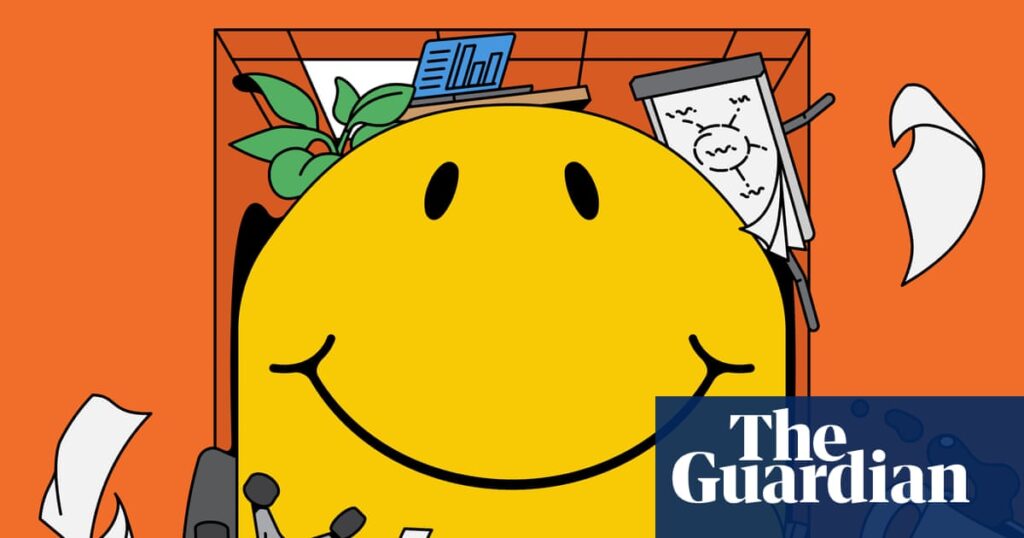
Who would say work was fun? Your job might be rewarding some of the time, and you may get along with some of your colleagues. But fun? It seems both too grand an ambition and too small. After the work-centric “hustle culture” of the 2010s and the subsequent backlash and burnout from the COVID-19 pandemic, the general sentiment around work today is ambivalent at best. At worst, it’s openly combative, as evidenced by the ongoing “battle” over remote work. Managers want employees back in the office, while employees seek flexibility and a balance that limits work’s impact on their lives.
Gen Z, who have replaced millennials as the youthful force shaping the workforce, are particularly adamant about maintaining boundaries. Meanwhile, the looming threat of AI-induced unemployment adds another layer of uncertainty. The world of work is in flux, with a fight for our time and livelihoods at the center. Fun doesn’t seem to factor into it—yet Bree Groff argues that it should.
The Case for Fun at Work
Bree Groff, an organizational consultant and “change expert” at the New York-based company SYPartners, has worked with C-suite leaders at companies like Google, Microsoft, and Pfizer to transform corporate culture and improve employees’ work experiences. In her book, Today Was Fun, Groff advocates for a new approach to work: What if work was neither our sole source of meaning nor a necessary evil to be endured, but rather a “nice way to spend our days”?
Groff’s perspective on work shifted dramatically in January 2022 when her mother was diagnosed with terminal cancer, and her father was already battling Alzheimer’s. As an only child, Groff took leave to care for them. Her mother’s passing later that year gave her a new urgency to reevaluate how she spent her time. “I’m going to run out of Mondays, just like my mother ran out of Mondays,” she reflects.
“Work should be a source of joy, because it’s fundamentally good—and it should be only one of many joys.” — Bree Groff
Challenging Professional Norms
Groff’s experience growing up with parents who loved their jobs without letting them define their lives starkly contrasted with her own entry into the workforce. She found it burdened by back-to-back meetings, constant emails, and busywork with no clear purpose. Groff argues that the issue isn’t work itself, but the “patently ridiculous, if not outright dangerous” norms that accompany it—chief among them the expectation that work should come at the expense of sleep, relationships, or well-being.
One way to address this, Groff suggests, is by challenging the notion of “professionalism.” Often prescriptive, professionalism discourages people from bringing their full selves to work. Groff, who often appears on Zoom with wet hair, describes this as a small act of resistance against rigid dress codes. “You’re just as smart in your workout gear as you would be in a blouse,” she asserts.
The Business Case for Fun
Despite a post-pandemic sense of fatalism about work, Groff believes that making work more fun is not only possible but beneficial. Gallup’s State of the Global Workplace report highlights the issue: only one in ten UK workers feel engaged, one of the lowest rates globally. In the US, it’s nearly one in three—a ten-year low.
“Being miserable at work can even make your life worse than having no work at all.” — Gallup Survey
Fun has been shown to be a critical factor in thriving at work. A Gallup survey of German adults found that 81% of engaged workers reported having fun at work in the past week, compared to just 10% of disengaged workers. Groff argues that instead of using perks like free lunches to lure employees back to the office, companies should focus on creating a genuinely enjoyable work environment.
Practical Steps to Enhance Work Enjoyment
Make It Personal
Groff suggests personalizing your work environment to make it more enjoyable. This could mean decorating your desk with personal mementos or wearing clothes that bring you joy. Avoiding jargon can also make work feel more human.
Check In with Colleagues
Team dynamics play a significant role in work enjoyment. Groff recommends daily check-ins where team members share how they’re feeling, fostering a sense of community and support.
Share “User Manuals”
Understanding each other’s work styles can alleviate friction and enhance collaboration. Groff suggests creating “user manuals” to communicate personal preferences and stress responses.
“Thin-Slice” Your Joy
Even in tough times, it’s possible to find moments of joy. Groff calls this “thin-slicing” joy—finding small pleasures like a coffee before a meeting or a walk at lunchtime.
Go Where the Fun Is
If your workplace remains un-fun despite your efforts, it may be time to move on. Groff emphasizes that every day spent in an unsatisfying role is a day lost.
Ultimately, Groff’s message is clear: life is too short to spend five days a week wishing time away. By prioritizing joy and well-being, we can create a work environment that not only enhances productivity but also enriches our lives.
Today Was Fun by Bree Groff is available now, offering insights into how we can all make work a more enjoyable part of our lives.





